Can Switzerland learn from Rwanda on gender equality?
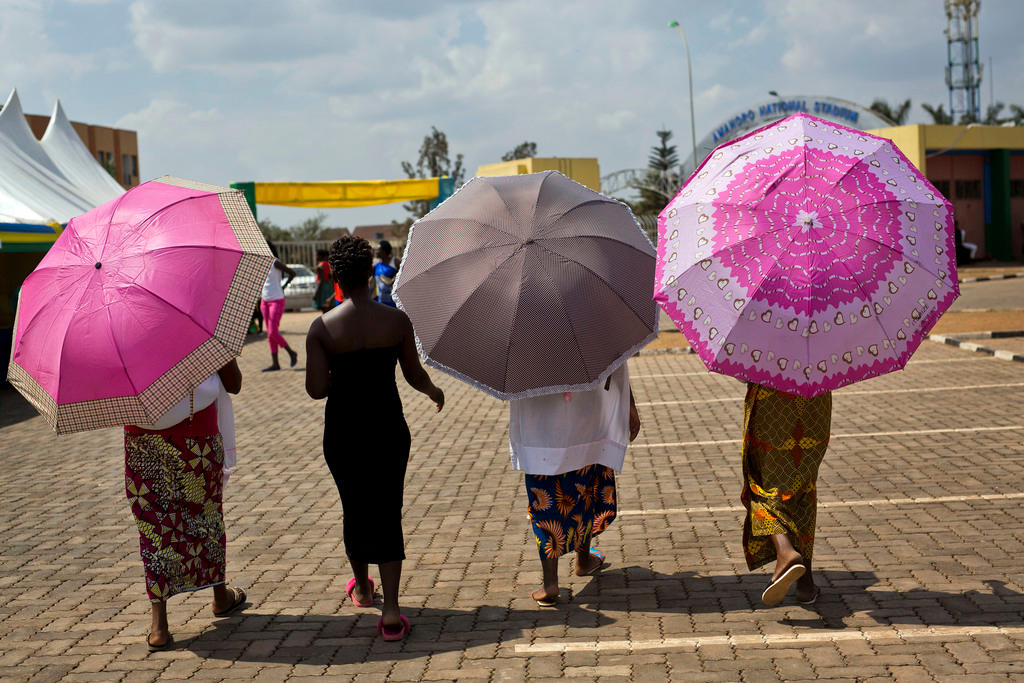
Rwanda is ranked sixth in the world by WEF in addressing the gender gap, and Switzerland is 20th. When you remind Rwanda’s Chief Gender Monitor Rose Rwabuhihi of that fact, the first thing she does is let out a hearty laugh. But then she explains: many laws reformed after the genocide 25 years ago have had a big impact on women’s lives.
Rwanda and Switzerland have some things in common. They are both small, mountainous countries with few natural resources, targeting services and tourism to help them get richer. Cows are important, both countries are patriotic and known for their love of order.
Other than that, they are very different. In an index of GDP, human rights or democratic freedoms, Switzerland would be way ahead. Switzerland has been stable and peaceful for a long time, whilst Rwanda is still scarred by the 1994 genocide. Switzerland has a system of direct democracy and power sharing. In Rwanda Paul Kagame, a military man re-elected in 2017 with 98.8% of the vote, has been president for 19 years. He is likely to stay there for the foreseeable future following a 2015 referendum that allowed him to run for another seven-year term plus two additional five-year terms thereafter. Kagame is regularly criticised by international NGOs such as Human Rights WatchExternal link for human rights abuses and suppressing opposition.
And yet, Rwanda is top when it comes to women in politics, and this is the main area where it beats Switzerland. More than 60% of seatsExternal link in Rwanda’s parliament are held by women. In Switzerland, women make up about 30% in the House of Representatives and only 15% in the Senate.
Sylvie Durrer, director of Switzerland’s Federal Office for Gender EqualityExternal link, points out that the WEF indicators are quite narrowly focused and rate certain factors higher than others, but says it is “regrettable” Switzerland did not perform better in the gender gap indexExternal link. And she thinks the Swiss can perhaps learn from other countries, even including developing ones like Rwanda.
Quotas for women
“In Rwanda they have introduced quotas in politics, and it has helped women make a lot of progress in the political area,” says Durrer. “It’s a measure that is used quite a bit at international level … but in Switzerland there is a kind of distrust. Almost 20 years ago, we had a popular vote on it and the population was clearly against quotas in political life.”
Back in the 1990s, women made up only 18% of the Rwandan parliament, on average. But then the country’s 2003 Constitution set a minimum 30% quota. “The quota was necessary because where do you start when you have very low representation?” says Rwabuhihi.
“It was very critical that there was a push so that we could have a meaningful number of women in the parliament,” she adds. “It is bearing fruit because we are seeing now how it is working well and making sure that the space that we need for women is there.”
She says Rwanda’s cabinet is also gender balanced, and the judiciary is nearly 50% female.
“It is important because girls and women outside are seeing women in office. This is sending a very strong message that women can also be part of the decision-making of the country.”
The WEF gender gap report
Scandinavian countries top the rankings in the World Economic Forum (WEF) 2018 gender gap report but Rwanda is not the only developing country in the top ten. Nicaragua comes in at number 5, Philippines at 8 and Namibia at 10.
Roberto Crotti, one of the report’s authors, says it doesn’t mean it’s better to be a woman in Rwanda or Nicaragua than Switzerland. The index compares the relative performance of women to men within a given country, creating a sort of level playing field between countries. “It can be that the absolute condition is worse but the condition with respect to men is better,” he explains.
What Switzerland should do
During the recent spring session of the Swiss parliament, the president of the left-wing Green Party, Regula Rytz, put the onus on parties to close the gender gap in politics. “I think it’s the responsibility of the parties,” she told swissinfo.ch. “So it is absolutely necessary to have a law like now in some parts of Germany, making it a duty for the parties to present electoral lists with an equal number of men and women.”
Some parties already do this, but it is not mandatory. Rytz says her party plans to present more women candidates for the upcoming 2019 elections, but centrist and right-wing parties should do more to promote women in politics. “I think that will only happen with obligations laid down by law,” Rytz says.
“It’s true that there are more women engaging in politics on the Left than on the Right of the political spectrum,” says Jean-Pierre Grin, a parliamentarian for the right-wing Swiss People’s Party. Like his party, Grin is against any quotas or legal obligations in this domain, but believes it is necessary to “work with the youth downstream, and get young girls interested in politics”, particularly in schools.
The Social Democrats say they already have more women than men in the House of Representatives, and more women in the Senate than all the other parties. Roger Nordmann saysExternal link on the party website that what is needed to get more women in parliament is “structural adjustments in the political arena, including in terms of political culture and reconciliation of family, career and a political activity.”
Equal pay and home-work balance
Where else could Switzerland improve, according to WEF’s gender gap report? Its co-author Roberto Crotti says the country could do better in terms of women in senior management positions, and on wage parity. The latter point has improved somewhat, he says, but more could be done.
And Switzerland could improve its policies regarding child care and schooling, says Crotti, measures that “can really push the opportunities for women”.
Durrer of the gender equality office agrees.
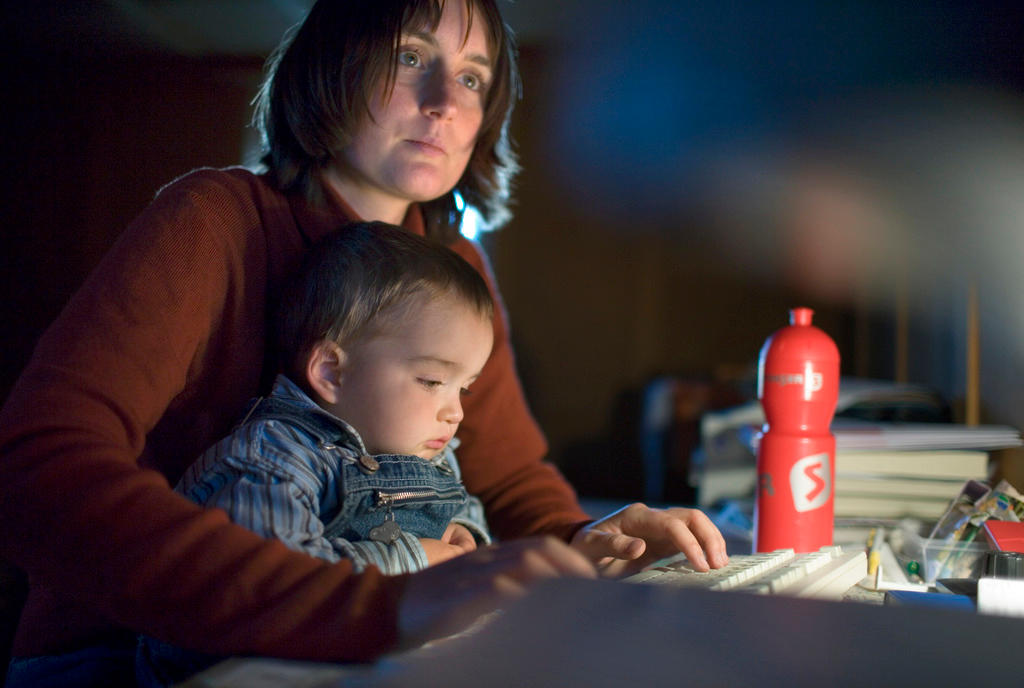
More
Mothers face double-edged sword in Swiss workplace culture
“In Switzerland…we have a lack of places in day care centres, and they are too expensive for quite a few families. So most of the time Swiss mothers are going to quit their job or work part-time,” she says. Even though part-time work can be part of the solution to reconciling work and family life, it is also part of a wider problem, thinks Durrer, because it has a negative effect on social insurance and retirement pensions in the long run.
In Rwanda, there has traditionally been no need for childcare, although this is changing. Women could take their children to work or other family members would assume the task.
Asked what policies have been particularly successful in closing Rwanda’s gender gap, Rose Rwabuhihi cites political will at the top and a clear gender policy.
“In Rwanda, gender mainstreaming is really part of development strategies,” she told swissinfo.ch, citing more than ten sectors that have a strategy to address gender issues and an obligation on public agencies to submit a “gender budget”. One of the things she has learned, she says is that “resources matter”.
Desire for change
Durrer points out that Switzerland got two new women in government at the end of last year. “We have a gender-balanced government these days, because we have three women and four men,” she says, adding that there was a general expectation among the Swiss population that two women be elected to the cabinet posts.
“It wasn’t argued much in parliament and these two women were elected in a very clear manner.”
She thinks it’s part of a shift in public attitudes regarding gender equality in Switzerland, pointing to a surveyExternal link where more than 1,000 people were asked their opinion on the issue.
“Women are harsher than men, but both women and men say we haven’t achieved gender equality in family life, on the labour market, in politics and so on. So we see that there is a certain kind of awareness in the population, a desire to have more gender equality.”
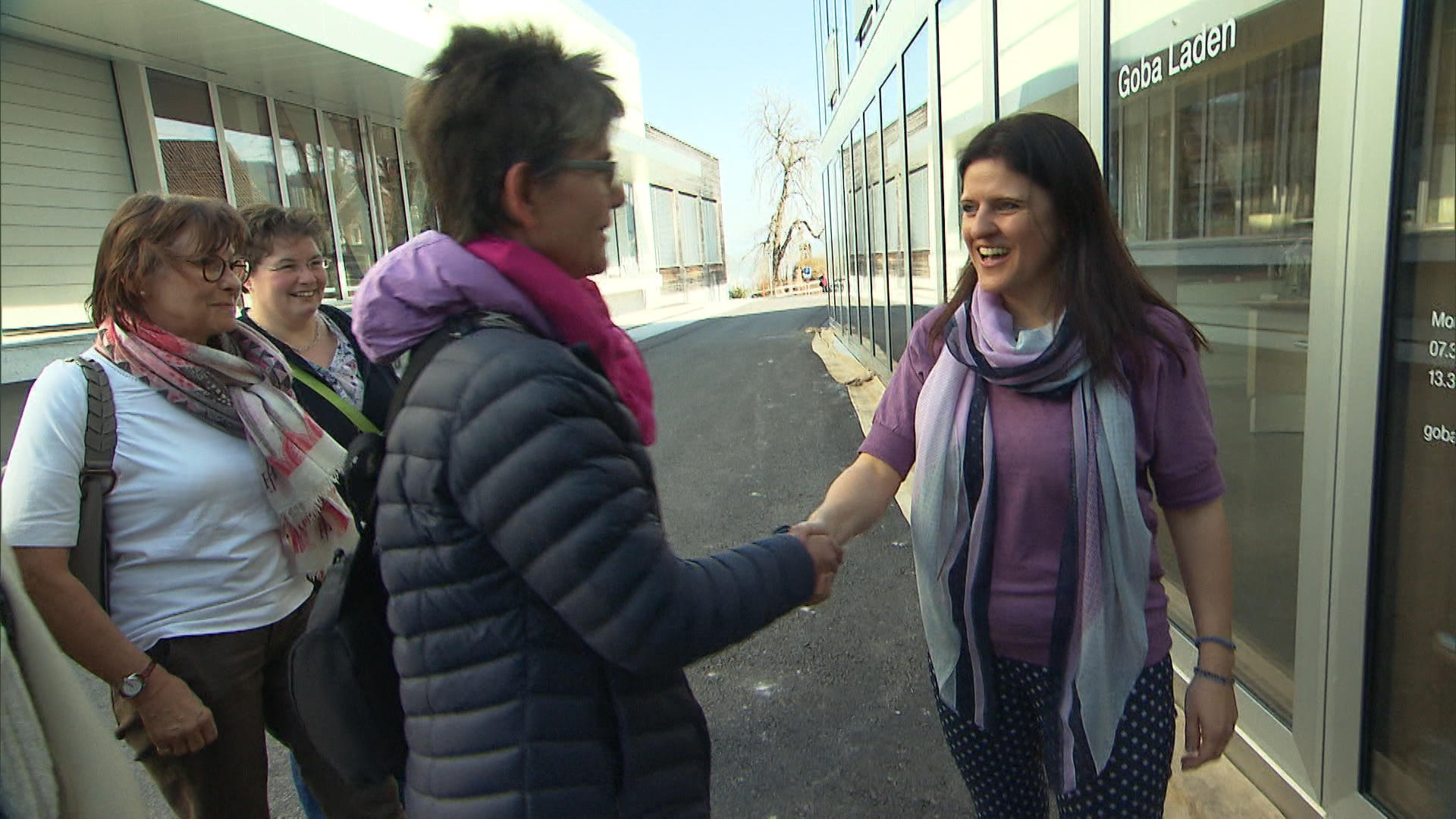
More
Women campaign for a bigger role in Swiss politics

In compliance with the JTI standards
More: SWI swissinfo.ch certified by the Journalism Trust Initiative









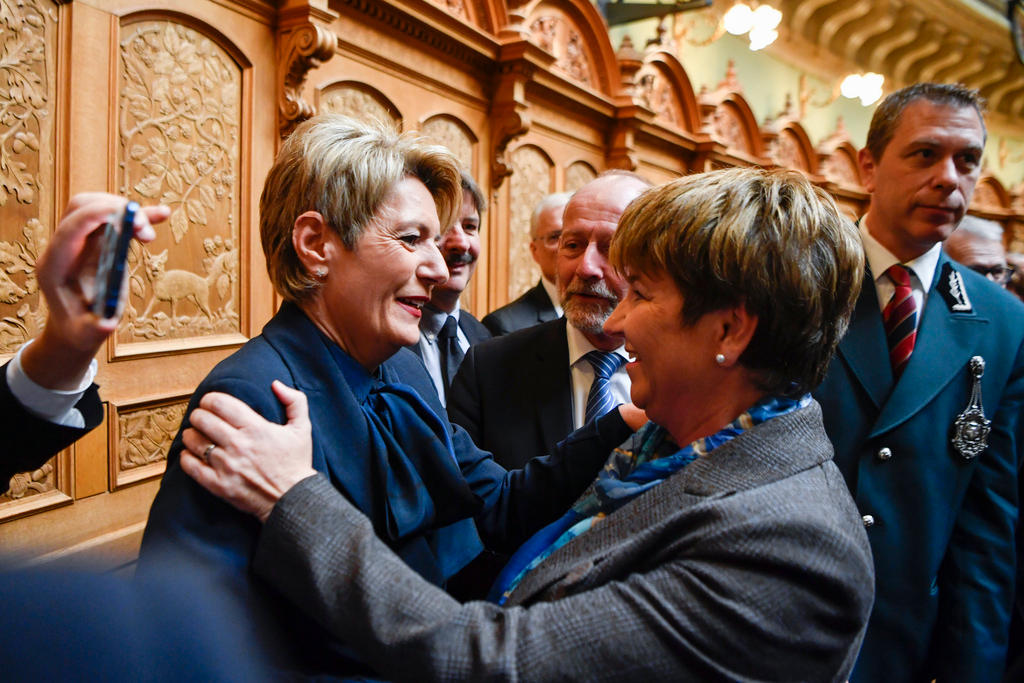

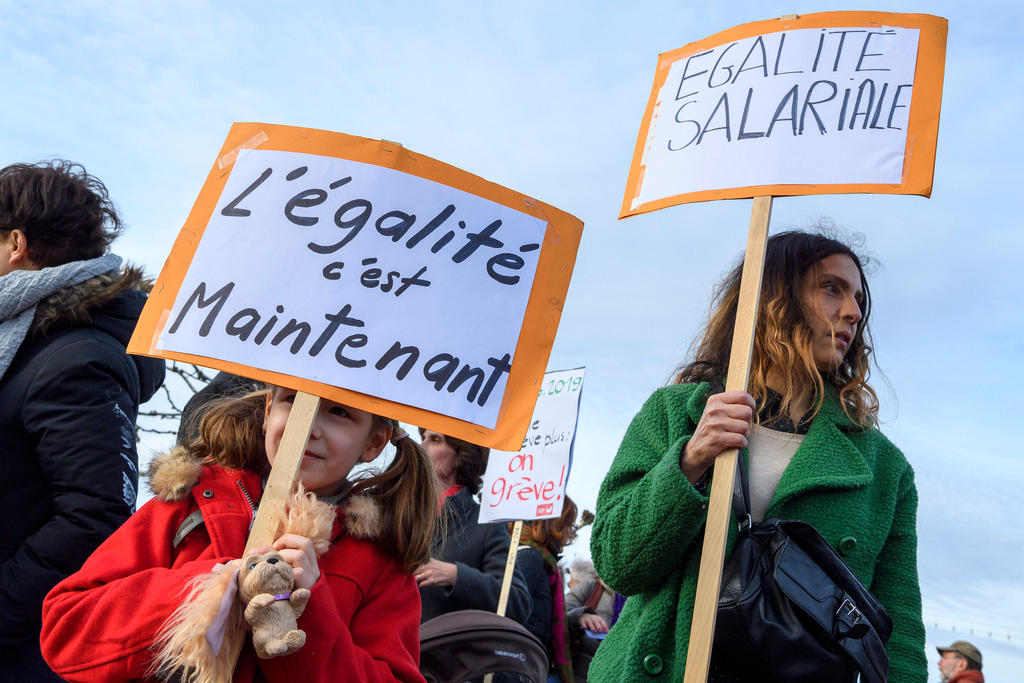
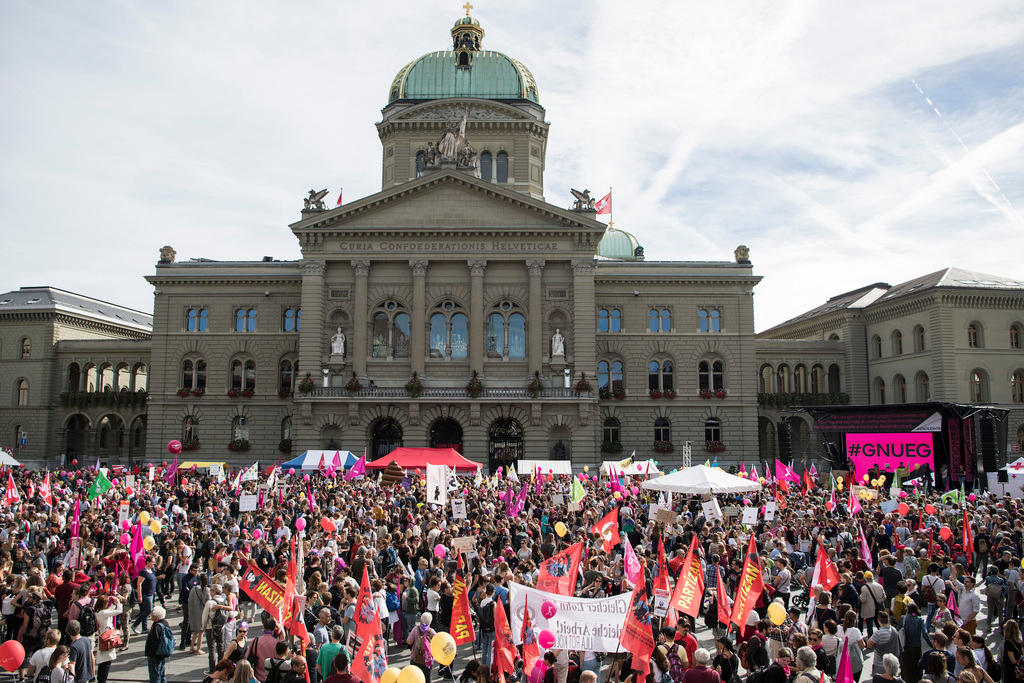
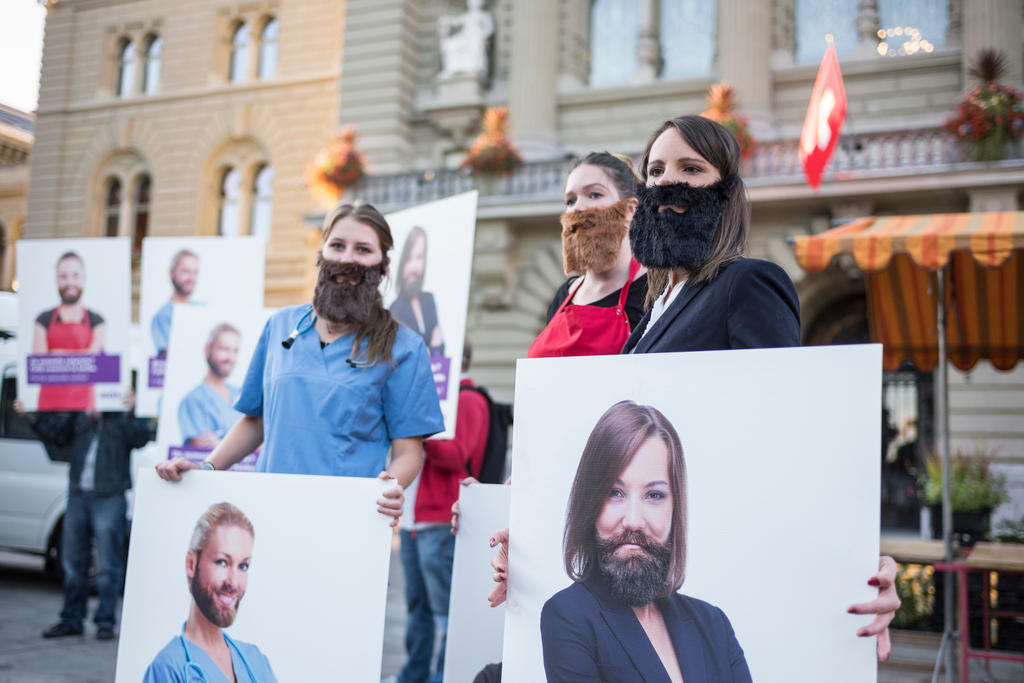

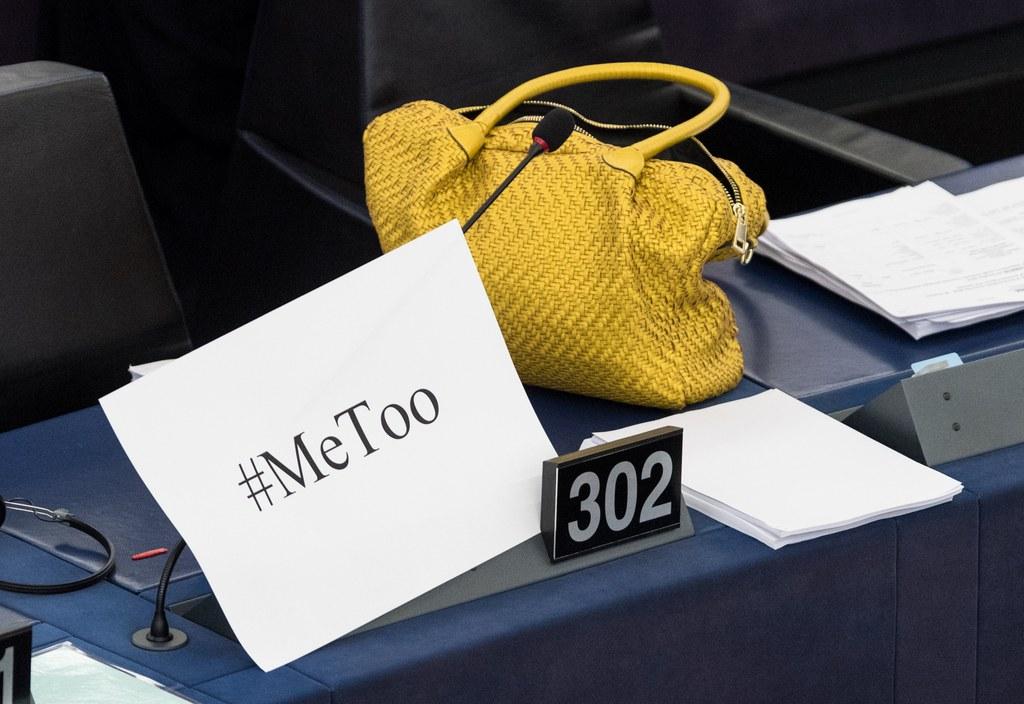
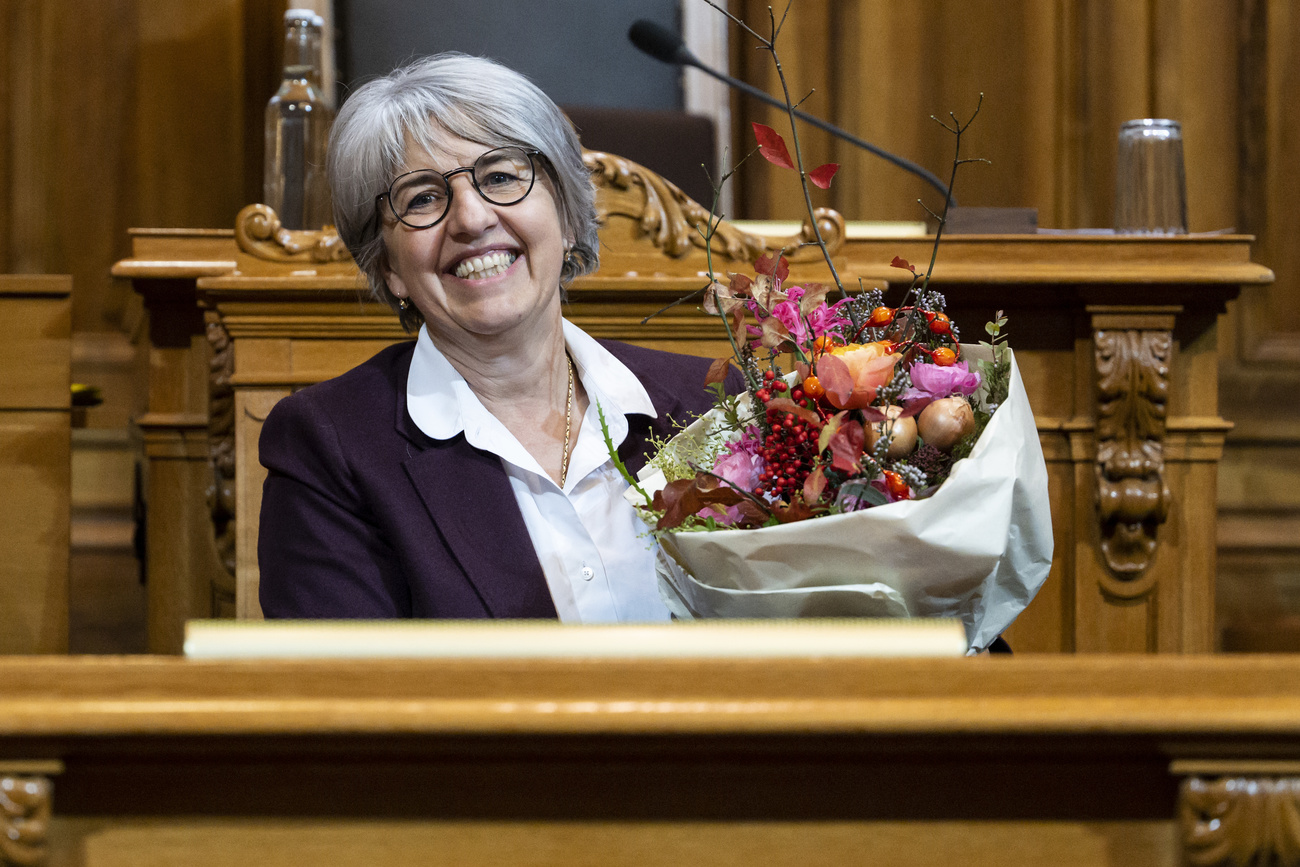
You can find an overview of ongoing debates with our journalists here . Please join us!
If you want to start a conversation about a topic raised in this article or want to report factual errors, email us at english@swissinfo.ch.